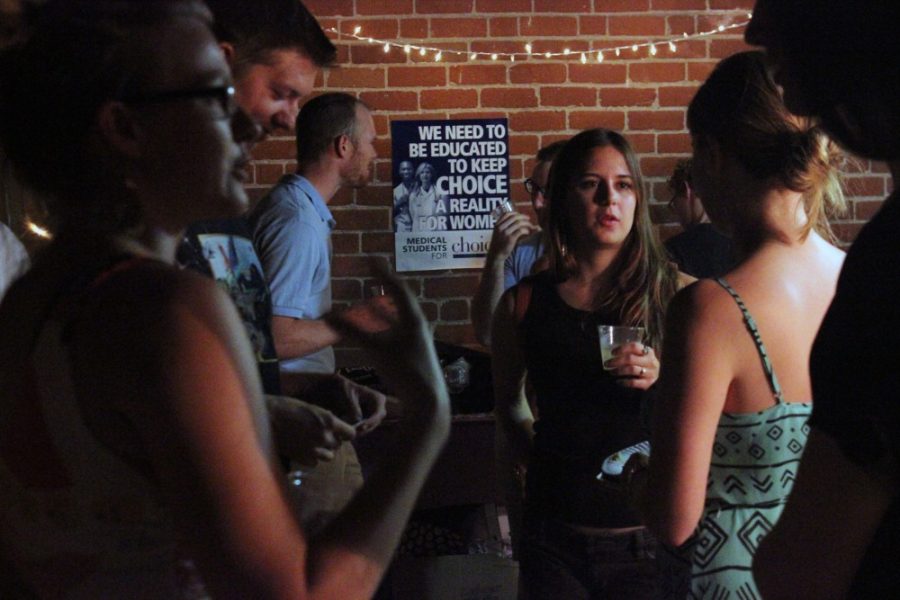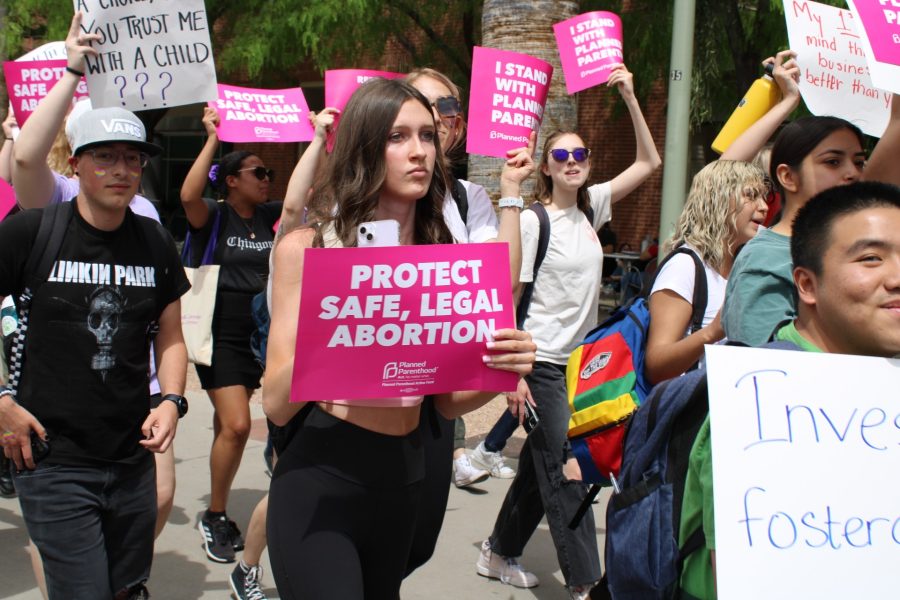The UA Medical Students for Choice club is one among many Arizona organizations working to give women and students opportunities for medical health regarding abortions, despite restrictions.
Medical Students for Choice is a national nonprofit organization that seeks to include abortion in the curriculum of medical schools. The UA chapter of the organization is working to educate medical students about the restrictions regarding the medical practice of abortion and the laws surrounding it, particularly the legal consequences of the UA football stadium remodeling in the mid-’70s, according to Katie Hartl, co-coordinator of UA Medical Students for Choice and second year medical student at the UA College of Medicine.
In 1974, the university was offered $5.5 million by the Arizona State Legislature to improve the football stadium under the condition that the medical school would not teach its students how to perform abortions. What was initially a contractual agreement is now Arizona law, according to Kat Sabine, the executive director for the National Abortion and Reproductive Rights Action League Pro-Choice Arizona.
Arizona Revised Statute 15-1630 states that abortions at educational facilities under the Arizona Board of Regents are prohibited unless it is necessary to save the life of the woman or the fetus is already dead. Because the University of Arizona Medical Center is considered a teaching hospital, students interested in learning the procedure must be trained at a specialized clinic, such as Planned Parenthood, said Ilana Addis, the division director of general obstetrics and gynecology at the UA College of Medicine.
The Medical Students for Choice club holds events to educate their classmates about the abortion laws, which includes talks by educators and fundraisers. The club also does training for the abortion procedure, where students learn the procedural process before practicing with a papaya fruit, according to Hartl.
“If we don’t have people who can do it, then it’s not going to be safe,” Hartl said. “People need to develop interest now and pursue that training to increase the number of providers so it’s not a bottleneck. So it’s not such a risk.”
Retired Tucson Superior Court Judge Margaret Houghton and her husband, Bert Falbaum, are financial supporters of the club. Houghton gives an annual lecture to the medical students on the laws regarding abortion.
Houghton’s talk discusses the specifics of the law and efforts that have been made to minimize the burden on families regarding abortion, according to Hartl.
The Abortion Access Network of Arizona is a nonprofit organization that provides small grants for women who need help paying for their abortion, according to Serena Freewomyn, a co-founder of AANA. For the first trimester, an abortion can cost between $300 and $500 and the second trimester can cost $1,400 or more, according to Freewomyn. AANA gives money directly to the clinic and connects women with agencies they can trust to get additional funding.
There are only six clinics in Arizona where a woman can receive an abortion: four in Phoenix and two in Tucson.
However, Sabine said there are more than 100 fake clinics throughout the state.
“If you did not know that they weren’t going to provide you accurate information, you could end up in one of these centers and really either be emotionally terrorized by somebody or be provided misinformation,” Sabine said. “That’s just not OK.”
Freewomyn also said the fake clinics will delay the procedure until it is no longer legal for a the woman to receive an abortion.
“When we say it’s my body, my choice, we’re not just talking about abortion,” Freewomyn said. “We’re talking about the right to control our own destinies, and the right to control our own lives.”
– Follow Maggie Driver @Maggie_Driver









